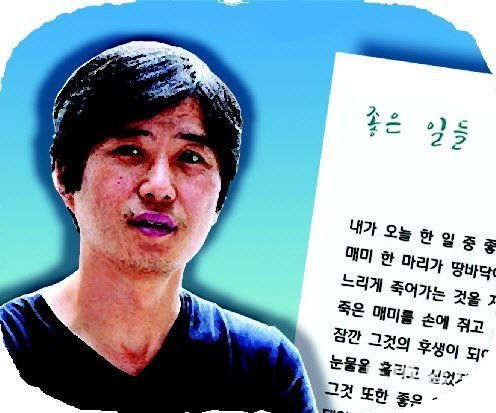Like the end of a cicada’s life
Like the end of a cicada’s life
Posted January. 25, 2023 07:51,
Updated January. 25, 2023 07:51

All lives are obsessed with life until they die. That is the very instinct of life, and cicadas are no exception. Nearing death, cicadas can neither fly nor cling to trees. They lie upside down with their abdomen facing upwards, and all they can do is to feebly move their wings. Despite this sign of impending death, cicadas still move their wings until the very moment of their death. However futile their fluttering may be, the dying cicadas show the very essence of life, which is to be obsessed with life.
Poet Shim Bo-seon’s poem “Good Deeds” is about such death of cicadas. “One of the good deeds I did today was / to stand by a slowly dying cicada / lying aboveground with his abdomen facing upwards.” The poet feels the meaninglessness of life while watching the cicada slowly dying. However, he did not cry even though he felt like doing so. “I wanted to shed tears, but it did not come out / this is another good deed.” Why does the poet describe him controlling sadness as a good deed? It might have been a way of paying respect to a soul so that it could die peacefully. We can only assume.
One may criticize that it is a far-fetched allegory to assume that this poem about a cicada’s death depicts the life of human beings. Nearing death, people lie with their heads facing upward toward the sky to end their lives on the ground. But they still instinctively try to continue their existence, just like cicadas do. That the end of life is in vain is the same for both cicadas and humans. Observing the waning lives is a sad, yet good deed. It is a very natural thing to do—to respect the life led by the loved one and bid him farewell. When one ends writhing in pain, like a cicada ends its fluttering, we begin to mourn the dead by recalling the memories through the libido, as Freud puts it. It would not necessarily be a good thing not to cry despite the sadness, as the poet said because every person has different ways of mourning the dead. One can put this in Derrida’s statement: “I mourn therefore I am.”







